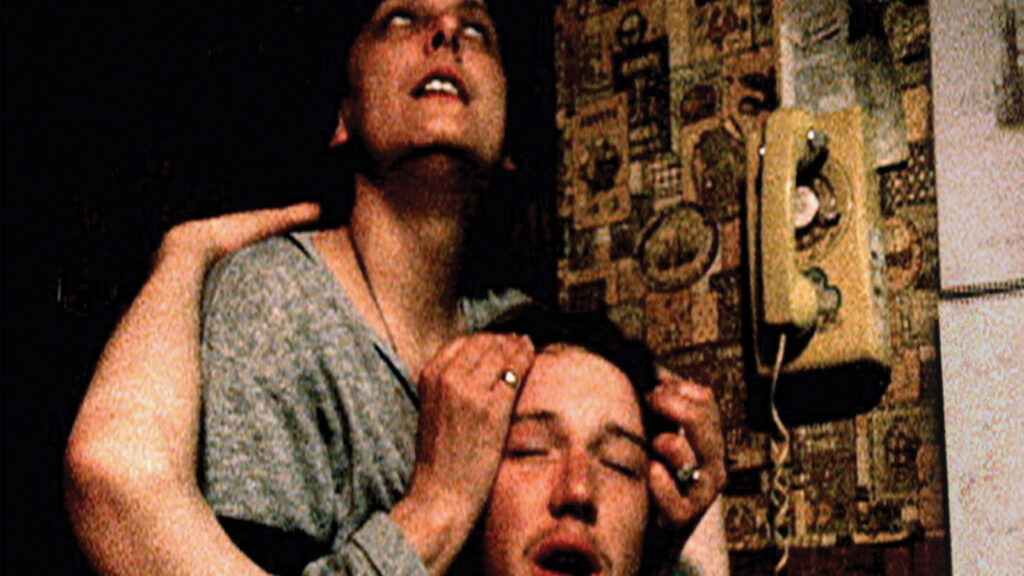
In the same decade that John Hughes redefined what it meant to be a teenager in movies Joel DeMott and Jeff Kreines made their film Seventeen (1983). An exercise in direct cinema, Seventeen chronicles the lives of a handful of high school students in Muncie, Indiana. Originally intended to be an episode in a documentary series that Peter Davis produced for PBS, Seventeen proved too controversial for the airwaves with its frank depictions of teenage drug use, sex, and interracial relationships.
The first hour of the film focuses on Lynn’s relationship with a Black student that is juxtaposed with a subplot regarding Robert, a Black boy who has gotten his girlfriend pregnant. DeMott and Kreines follow Lynn to school, work, her boyfriends’ houses and even to her mother’s keg party; recording Lynn’s life without judgement. The juxtaposition of Lynn and Robert’s stories gets to the heart of how, for a teenager, racism is determined by group dynamics and immediate social surroundings.
Lynn and her girlfriend, in an effort to affirm themselves in the company of their Black boyfriends, casually maintain that they are “swallowing their pride” as white women to be with them. In subsequent scenes Lynn will defend her interracial relationship, denounce her interracial relationship, and generally degrade her Black peers. Lynn is so completely casual about these social shifts that it starkly captures the self-centeredness and flexibility of the teenage ego. What’s more surprising is that the Black students in her class and in her social group exhibit the same flexibility in their attitudes towards their own race.
Lynn’s story is a disturbing reminder of how ingrained racism is in American culture. Racism is systemic within the institutions that surround Lynn (school, family, work, etc.) but it is the extent to which its effects are seen across a myriad of demographics that is startling. DeMott and Kreines let these things play out, fully aware of the fact that the ability of such moments to affect their audience is best served by simply, plainly recording such moments.
Seventeen isn’t just about race at a public high school. Lynn’s section of the film is only a third of what goes on in Seventeen. As a whole, as a documentary, Seventeen is a record of behavior, thought, and attitude that comes from the naivete and inexperience of youth. Thematically Seventeen manages to touch on many of the events one associates with teen oriented fiction films (parties, pregnancy, drinking, death, and dating). However DeMott and Kreines, to the chagrin of Peter Davis, never rose tint their lens, never stoop to the kinds of romanticizing or ideation of John Hughes.
Even in contrast to the serious teen movies, like Elephant (2003) or Kids (1995), Seventeen remains so much more truthful, honest and relevant. Seventeen is the defining cinematic expression of teenaged America. From the vantage point of the early twenty-first century its observations on race feel as fresh and urgent now as they did back at the 1985 Sundance Film Festival.
